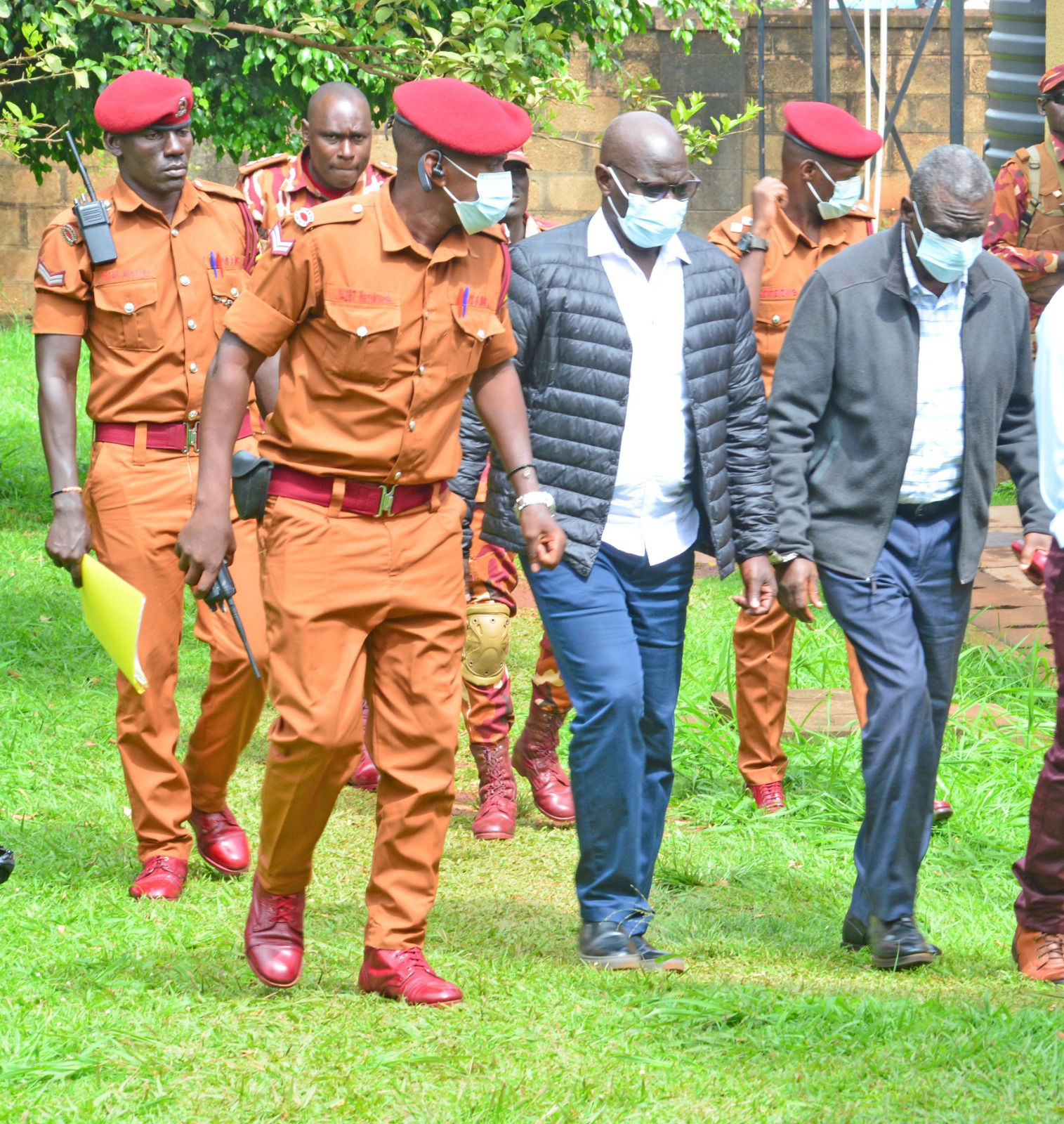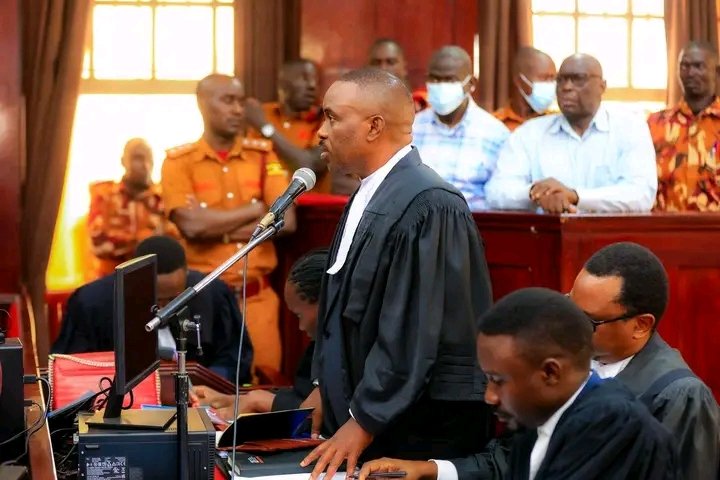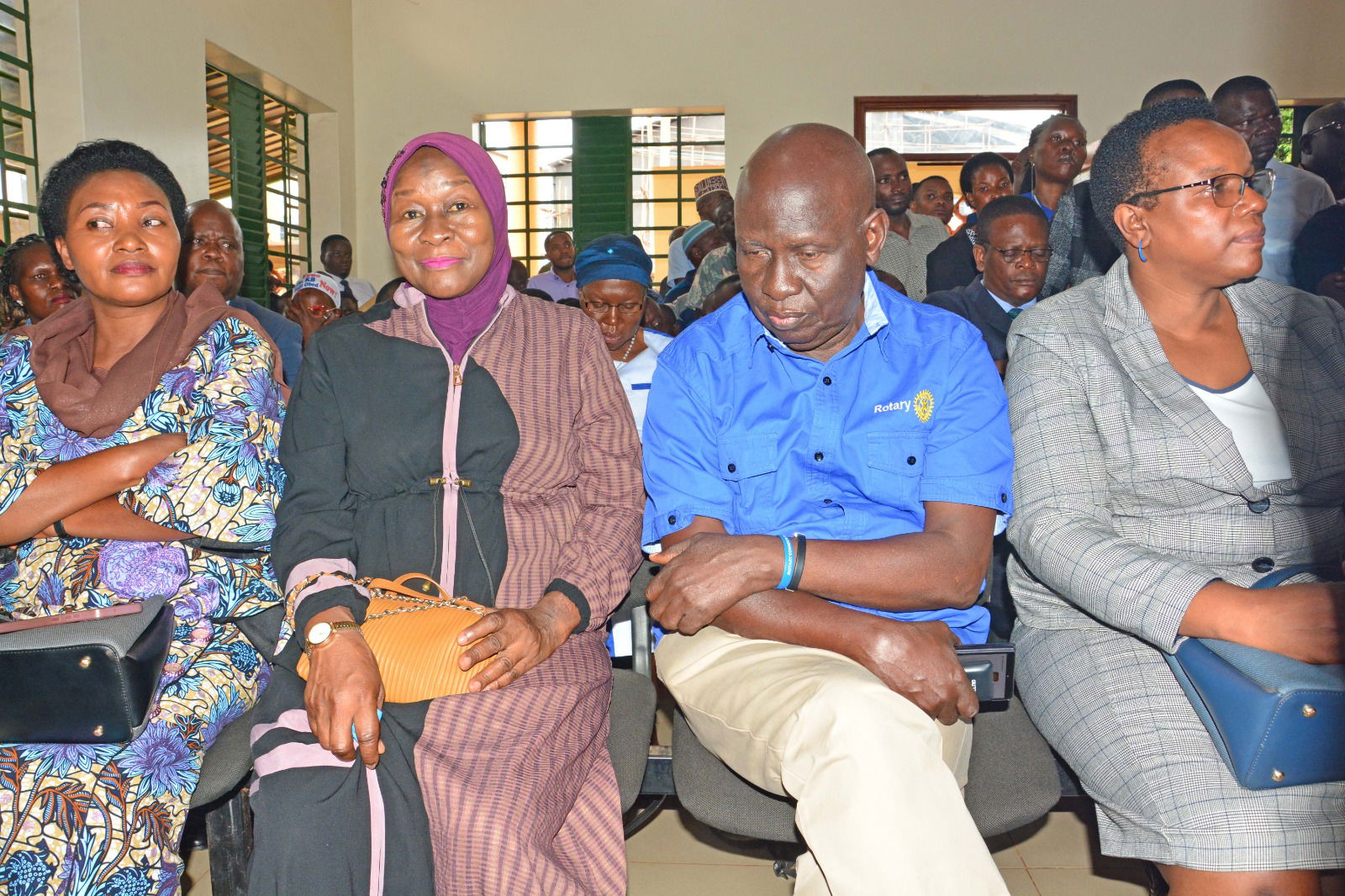Courtroom Drama as State Seeks Closed-Door Hearing for Dr. Kizza Besigye Case
At Nakawa Magistrates Court on Friday morning, a tense courtroom exchange unfolded as state prosecutor Richard Birivumbuka called for a closed-door hearing in the ongoing case against opposition leader Dr. Kizza Besigye, citing security concerns for a key investigative officer. The request, however, was met with staunch resistance from the defense team.
The session, overseen by Chief Magistrate Esther Nyadoi, focused on the cross-examination of Benedict Odiek, an investigative officer in the case. The court had previously granted the defense the right to cross-examine Odiek during an earlier sitting.

However, when the matter came up for hearing, Birivumbuka requested that the cross-examination be conducted in chambers, away from the public and the press. He argued that Odiek faced immediate threats to his safety and would be vulnerable to public attacks, pointing specifically to songs sung in the courtroom during Besigye's appearances as evidence of intimidation.
“Appearing in court jeopardizes his security and compromises the integrity of the investigation,” Birivumbuka stated, calling for protection of the officer and the ongoing probe.
The defense team, led by lawyers Frederick Mpanga and Elias Lukwago, fiercely opposed the motion, describing it as an abuse of the court process. Mpanga dismissed the state's concerns, arguing that similar claims had been previously rejected by the Constitutional Court.

He further questioned the validity of the alleged threats, noting that the songs sung in court during Besigye’s appearances were not directed at Odiek but were part of a routine display of support for the opposition leader.
“It is strange to claim that singing in court is a form of intimidation when it has happened routinely. Besides, there is doubt that the witness himself expressed such fears,” Mpanga argued.
The defense lawyers also pointed out that Odiek’s identity had already been publicly disclosed, making the request for secrecy unnecessary.
“The state has already exposed the officer by providing his full details, including his picture,” Mpanga added.
Elias Lukwago, Besigye's lead counsel, further criticized the state's approach, arguing that if there were genuine concerns about security, the prosecution should have filed a formal application with written evidence and an affidavit. He contended that the state had failed to follow due process.

Lukwago also emphasized that the case had been conducted in open court from the beginning, even during its time at the Court Martial, where public attendance was allowed.
“If the Court Martial permitted public participation, why should this court now exclude the public?” Lukwago questioned.
Despite the defense’s arguments, Birivumbuka remained adamant, reiterating that the public would be excluded from the cross-examination. “They'll have a right to appear when the substantive trial of this matter is on,” he stated.
The court adjourned as Chief Magistrate Nyadoi deliberated on the application.